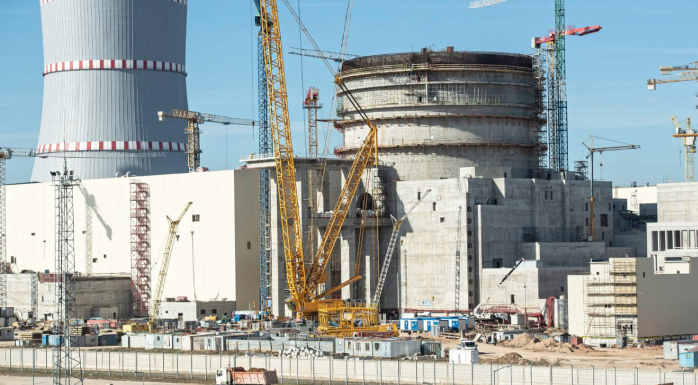
• Corporation posts improved revenue report By Prince Osuagwu, Hi-Tech Editor
This appears to soothe the nerves of African partners of the Corporation, including Nigeria who have been battling to convince citizens that the Russian company’s nuclear technology and experience has zero tolerance on environmental health hazards.
Rosatom has signed agreements with different African countries including Nigeria, Egypt, Morocco, Zimbabwe, Burundi and Senegal among several others on a range of areas that have to do with creation and use of nuclear energy.
The agreement with Nigeria, which was signed in 2015 was for cooperation in the design, construction and decommissioning of nuclear power plants on the territory of Nigeria. However, in 2019 Nigeria and Rosatom also signed another intergovernmental Agreement to cooperate in developing nuclear energy for peaceful purposes.
Similarly, that of Zimbabwe has to do with assistance in the creation and improvement of the country’s nuclear infrastructure in accordance with international guidelines; regulation in the field of nuclear and radiation safety, production of radioisotopes and their use in industry, medicine and agriculture; cooperation in areas of application of radiation technologies and nuclear medicine, education, training and retraining of specialists for the nuclear industry.
Morocco’s agreement is based on the cooperation for implementation of desalination, water conditioning and water purification projects.
In Burundi, the agreement is on cooperation for personnel training and education in peaceful atomic energy, including assisting in the establishment and improvement of Burundi’s nuclear infrastructure; legal regulation in nuclear and radiation safety; conducting fundamental and applied research in the area of peaceful atomic energy; radioisotopes production and its application in the industry.
In Egypt, not only that Egyptian President, Abdel-Fatta el-Sissi and Russian President Vladimir Putin had signed the final agreement to build a Nuclear plant at el-Dabaa, on Egypt’s north coast, five years ago, the country in June this year, gave a go ahead to Rosatom to start building and in July, the company announced that it has started building the 25 million Euro plant designed to have four 1,200 megawatt reactors
However, despite the celebration of these agreements, apart from Egypt who has taken the bull by the horn, activities seem to delay on the projects owing to nuclear politics, lack of political will, financial constraints and chiefly, fear of environmental hazards.
Nuclear is generally feared to emit radioactive components that are not healthy for humans and the environment despite repeated researches which debunk this narrative when it comes to nuclear energy plants.
But, interestingly, the top rating Agency, ACRA has affirmed that Rosatom is top notch in keeping to rules of Environment Impact Assessment and deserves a raise in its Environmental Social Governance, ESG rating from ESG-3 to ESG-2.
The rating agency says six main divisions of Rosatom, including the Mining, the Power Generating, the Sale and Trading, the Fuel, the Engineering and the Machine Building had taken part in preparation of the information for the ESG rating.
The revenue of these divisions amounts to more than 70% of the consolidated revenue of Rosatom, which has just published an annual report for 2022, saying Corporate revenue from new businesses in 2022 reached a record high of RUB 697.5 bn (USD 7.2 bln), having doubled year on year.
Also, revenue from international contracts in the reporting year amounted to USD 11.8 bn, up 31% compared to 2021.
Vladimir Gorchakov, Head of the Sustainable Development Risk Assessment Group of AKPA (JSC), said: “Upgrading of the ESG rating for Rosatom is due, inter alia, to improvement of individual policies and practices of the State Corporation in 2022-2023 and the positive dynamics in a number of indicators subject to assessment. In 2023 Rosatom also performed the calculation of greenhouse releases and approved the Methodological Guidelines on Greenhouse Gas Release Calculations, developed such documents as the Roadmap for Adaptation to Climatic Changes and the next Energy Saving and Energy Efficiency Enhancement Program for 5 years”.
Director of the Sustainable Development Department of Rosatom, Polina Lion, said: “It is important for us that AKPA considers documents, sustainable practices and indicators of individual divisions, and not only the consolidated data for the State Corporation in general. This enables us to better understand the areas for enhancement of the sustainable component in the organizations of Rosatom, to implement the particular ESG requirements not only at the strategic but also at the operational level”.
